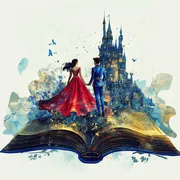Why FictionMe (or Any Platform) Might Reject Your Book
I know rejection stings. Whether you’ve submitted your story to FictionMe or another platform and got that polite “no thanks,” it can feel like a punch to the gut. But rejection isn’t the end. It’s actually where real growth starts.
I’ve been there. More than once.
But don’t worry, because I’ve crafted an author-to-author breakdown of the most common reasons your story might get rejected, and what you can do about it.

1. The First Five Chapters are the Most Important
Think of your first five chapters as your audition, both for the platform editor and your future readers. If the opening drags, confuses, or doesn’t spark curiosity fast enough, there’s a high chance your book won’t make it past the review pile. Platforms like FictionMe are looking for stories that hook, not just eventually, but immediately.
That doesn’t mean cramming action into every line, but it does mean pacing matters. Introduce stakes. Drop breadcrumbs. Make readers ask questions they’re desperate to get answers to. The editor reviewing your book might be skimming quickly to assess potential, so if your first five chapters don’t deliver tension, movement, or emotional intrigue, your manuscript might get a pass, no matter how brilliant chapter six is.
My advice is to treat those first chapters like your story’s resume.
2. The Pacing is Off
We all love a good slow burn; the kind that builds tension and makes every moment feel earned. But there’s a difference between slow burn and nothing happening for five chapters straight. When your story takes too long to get to the point, both readers and editors will tune out.
Platforms like FictionMe thrive on serial fiction, which means every chapter has to give readers a reason to keep scrolling. You don’t need nonstop action, but you do need momentum. Each scene should serve a purpose: building tension, raising the stakes, revealing a new piece of the puzzle, or deepening emotional connections.
If a chapter doesn’t move the story forward, it’s dead weight.
Editors often judge a story’s potential based on the first few chapters, so if you’re spending five chapters on backstory, worldbuilding, or internal monologues, you’re likely losing them before the good stuff even starts.
Ask yourself after each chapter: Did something important happen? Did the stakes shift, even slightly? Does the chapter end with a question, reveal, or emotional hook that makes it impossible for the reader to stop?
If the answer is “no,” it’s time to trim the fat or rearrange your pacing. Remember, your first three to five chapters are essentially your pitch to the editor and readers.
Give readers a taste of what’s at stake early on, and make them need to find out what happens next.
3. Too Much Info Dumping
We all love good world-building, but dumping a ton of backstory or lore on your reader right off the bat can kill the pacing. Imagine being thrown into a world where you’re bombarded with lengthy explanations about the history of magic, the rules of the society, or the details of a political system before you even get a chance to meet the characters or understand the plot. It’s overwhelming, and worse, it slows down your story to a crawl.
Instead of front-loading your story with paragraphs of exposition, let the world show itself naturally. Introduce information as it becomes relevant to the plot or characters, not all at once.
Weave worldbuilding into the action through character interactions, dialogue, and observations. Maybe a character casually mentions the magical rules while having a conversation, or a protagonist notices a strange custom while interacting with a new character. This way, you’re giving the reader just enough to stay engaged, while also maintaining momentum.
When you're starting, think of your world as an onion; peel back layers over time. In each chapter, reveal a little bit more. This keeps your readers intrigued, letting them discover the world as your characters do, rather than dumping all the rules and facts on them at once.
Info dumping can also hinder character development, because if we’re too focused on the world around them, we miss out on seeing their growth or motivations. Keep the character’s journey in the spotlight while letting the world support the story, not overshadow it.
4. It Feels… Familiar (And Not in a Good Way)
Tropes are not the enemy. We love tropes. Fated mates? Yes, please. Enemies to lovers? Feed it to us. Brooding alpha hero with a tragic past? Sign us up.
If your story feels like a copy-paste of every other book in that trope, it won’t stand out. Editors and readers can spot a formula from a mile away, and unless you’re bringing something fresh to the table, they’ll scroll past.
Readers crave comfort in tropes, but they also want surprise. They want to think, “Oh, I’ve seen this before… but not like this.”
Keep the trope. Just twist it. Think: What if your alpha werewolf is a soft-spoken artist with social anxiety? What if your “chosen one” was picked by mistake, and they know it? What if your sunshine heroine slowly turns into the villain?
You’re the formula. Your voice, your perspective, your weird little ideas; that’s what makes the story and characters interesting. That’s what keeps it from blending in with a sea of sameness.
Safe stories are easy to skim. Play with the rules, then break them. That is how you write a story that will surely get you a contract.
5. The Tone is Inconsistent
Is your story erotica, dark romance… or a lighthearted teen fantasy? Readers want to know what they’re getting into, and if your tone shifts too dramatically—gory deaths in one scene, goofy banter in the next—it can confuse and disconnect them.
A consistent tone creates emotional continuity, guiding the reader through the highs and lows without pulling them out of the experience.
Define your tone early in your story and make sure each scene supports that vibe. Whether you’re writing something gritty and emotional or light and whimsical, your tone needs to stay grounded.
It's okay to have range; tender moments can still exist in a dark thriller, but the shift from one emotion to another should feel earned, not random. A simple way to check: Ask a friend to read a few chapters and share how the story makes them feel emotionally. If they feel like they’re on an emotional rollercoaster without rhyme or reason, it might be time to realign your tone.
6. Your Tropes Aren’t Developed
Tropes are like the spice in a dish. They add flavor, but without substance, they’re just empty seasoning.
A trope like “enemies to lovers” isn’t a shortcut to a good story. It’s a tool, but only if you use it wisely. It’s not just about having two characters who bicker and argue before they kiss. There has to be a solid, believable reason why these two people clash so much in the first place. What makes them enemies? Is it a history of betrayal, a clash of values, or something more personal? Why do they hate each other? Because of a misunderstanding or a deep-rooted grudge?
And then, the transformation into lovers needs to feel earned. You can’t just have them change their minds because it’s time for them to get together. It has to be a natural evolution. Maybe the villain has been hiding vulnerability behind his anger, or maybe the heroine has been pushing him away out of fear of being hurt. Their emotional journeys need to be as rich and layered as their relationship. Why does the villain fear intimacy? Why does the heroine keep pulling away, even when she’s falling for him? These questions matter.
The key here is to go deeper. Think about the backstory, the motivations, and the emotional baggage your characters carry. Layer in inner conflict and the push and pull of their desires. Show why they are the way they are and how those emotional walls start to break down. Don’t rush the process; let your characters evolve and change naturally. By the time they get together, it should feel like a hard-won victory, not a convenient plot twist. That’s how you turn a simple trope into a story that editors and readers will love.
7. Blurbs that Hurt More Than Help
Okay, let’s talk about first impressions. We all know the story is what matters most, but in the world of publishing, especially with platforms like FictionMe, it’s easy to forget how much your formatting and blurb affect your chances of being noticed.
Think about it like this: an editor or reader is scrolling through hundreds of submissions. They’ve got limited time, and that means your blurb and formatting need to hit hard and fast. If your blurb is a jumbled mess or your file’s hard to read, you’ve already lost their attention before they’ve even made it to page one.
It’s easy to think, “But the story’s great! Once they start reading, they’ll love it!” Maybe. But why give an editor or reader the chance to turn away before they even get into your story?
A vague or uninspired blurb is the fastest way to make them scroll past you. Don’t leave them wondering what your story is even about. You need that first line to grab them, to create an instant sense of curiosity. For example, instead of starting with, “In a world where magic exists,” try something punchy like, “She’s the witch he was born to hunt; so why can’t he kill her?” See the difference? It’s intriguing, it sets up tension, and it sparks a question that the reader wants to find the answer to.
8. Using AI-Generated Content is a Major Red Flag
Platforms like FictionMe and other publishers can tell when something’s been written by AI. You might think you’re getting away with using a tool to speed up the writing process, but trust me, the cracks will show.
The pacing becomes robotic, the emotion feels flat, and the dialogue often comes across as stiff or repetitive. While your story may look polished on the surface, it won’t feel alive.
AI-generated content lacks the nuances of human emotion, the subtleties of character development, and the organic flow of a story.
Editors and readers are trained to spot this. When you’re reading a piece written by AI, it doesn’t resonate in the same way as something crafted by a human mind. That spark of authenticity, the style that makes your writing uniquely yours, is absent. And that’s something editors won’t overlook. They want to feel connected to your characters, to your world, to the highs and lows of your plot. If it feels like something’s missing, it likely is.
AI tools can be great for brainstorming, organizing ideas, or even helping with research. But when it comes to actually writing your story, don’t take shortcuts. Editors are looking for authentic, human storytelling that’s packed with emotion, complexity, and depth.
You owe it to your story to give it the heart only you can give. Don’t trade that for shortcuts. Your story is your own, and that’s what will make it stand out in a sea of submissions. Don’t cheat on that.
9. Copyright and Plagiarism Issues Will Get You Instantly Rejected
Let’s talk about the elephant in the writing room: plagiarism. Whether it’s copy-pasting scenes from Wattpad, “borrowing” entire plotlines from a viral webnovel, or lightly rewriting a fanfic you posted years ago, it’s a massive no-go.
Platforms take this seriously. Editors run checks. Readers call things out. And once your name is linked to plagiarism, it’s really hard to bounce back. Even if you didn’t mean to plagiarize, maybe you were just “heavily inspired” by a book you loved growing up, it still counts if your work feels too similar.
The same goes for reusing your fanfic or old stories word-for-word without meaningful transformation. The internet has a long memory, and editors have sharp eyes.
Be inspired. Every writer is. But instead of mimicking what you love, ask yourself why it resonated with you. Take that feeling and rework it into something that belongs to you. Use your influences as a springboard. Because the truth is, your original take will always be more powerful than a polished copy of someone else’s work.
10. You Didn’t Write for the Platform’s Audience
Every platform has a specific audience. FictionMe, for example, caters to readers who crave fast-paced, emotionally charged, trope-driven stories. These readers want drama, romance, plot twists, high stakes, and characters that keep them up at 2 a.m., hitting “next chapter.”
So if your story reads more like a quiet character study, an introspective literary piece, or something that takes five chapters to introduce real conflict, it might not land, no matter how beautifully written it is.
You don’t need to “dumb down” your writing or chase trends you don’t care about. It’s about knowing who you’re writing for and meeting them where they are. Imagine throwing a cozy tea party at a rave. Nothing wrong with the tea party, it just doesn’t fit the crowd.
Do a little recon. Browse the platform. Read the popular stories. Pay attention to the rhythm, how chapters open and close, where the emotional beats fall, how the tension builds and explodes. Look at the tropes that dominate (fated mates, enemies-to-lovers, hidden identities), and think about how you can use them.
Structure your story with cliffhangers, tension, and moments that make readers feel. That’s what keeps them scrolling. You’re not “selling out” by doing this; you’re adapting your storytelling so it lands with the people you want to reach. And honestly? That’s just good writing.
Rejection Doesn’t Define Your Worth as a Writer
It’s simply part of the journey. Every “no” is an opportunity to improve and refine your craft. Don’t let it discourage you. Instead, use it as motivation to push forward.
One rejection doesn’t mean your story isn’t good; it might just mean it’s not quite ready yet. Take the feedback, revisit your work, and make it better. You have something amazing to share, and your story deserves to be read. Keep writing and remember that your breakthrough might be just around the corner.
Start your writing career with us!
We are making a commitment to always be there for you throughout your journey as an author.
Recent Articles

10 Books Like Fifty Shades of Grey That Are Even Hotter
Jul 29, 2025

How to Make Old Tropes Feel Fresh Again: 10 Ways to Reinvent the Stories Readers Crave
May 15, 2025

How to Make Readers Fall in Love With Your Book in Just 5 Chapters
May 13, 2025

Get Your Book Ready: A Simple Formatting Checklist for Authors
May 13, 2025